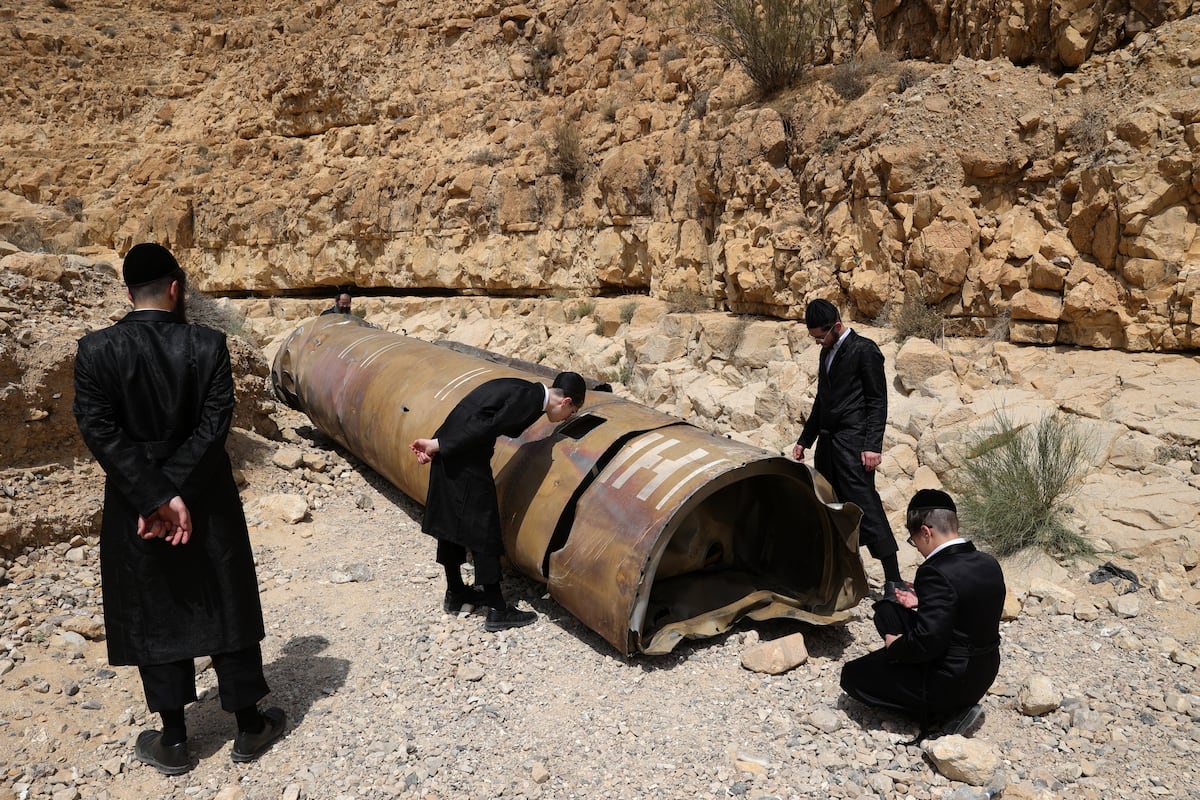Israel’s Supreme Court said Wednesday that it would review a contentious new law that diminishes the court’s own role, setting the stage for a constitutional crisis and renewed social turmoil if the judges end up overturning the legislation.
The Supreme Court may now, in essence, decide its own fate and choose between accepting Prime Minister Benjamin’s Netanyahu’s move to reduce its power — or reasserting its dominance by striking down the law.
The decision to take up the case, beginning in September, sets up a potential clash between the government and the highest court in the land.
If the court rejects the law, Mr. Netanyahu and his right-wing coalition might refuse to abide by the ruling, forcing senior civil servants and lower courts to decide which branch of government to obey. If it allows it to stand, the decision may be seen by hard-liners as a green light for the government to do as it wishes.
However it rules, the court’s decision is likely to provoke widespread anger, since the issue has become a proxy for a much broader battle over Israel’s character.
The court’s announcement on Wednesday came in response to the passage on Monday by Mr. Netanyahu’s coalition of a deeply divisive bill that stops the court from overruling government decisions that it finds lack “reasonableness.” The government argues that the term, never defined in a statute, is too subjective and gives unelected judges too much leeway to overrule elected lawmakers.
The bitter debate over the law has widened Israel’s social fissures into profound divides.
Large parts of society fear the change will remove an important check on Mr. Netanyahu’s government — the most nationalist and religiously conservative in Israeli history — and allow it to gradually turn Israel into a less pluralist country.
In a separate development, lawmakers from Mr. Netanyahu’s party, Likud, introduced a draft law late Wednesday that would strip the attorney general of the authority to oversee the prosecution of government ministers — including the prime minister.
If passed after Parliament returns from recess in October, the bill could affect Mr. Netanyahu’s ongoing corruption trial, transferring supervision of the prosecution to a different official, the state attorney, who experts say could potentially decide to reassess the decision to pursue charges.
In a statement, however, Likud said the bill had been introduced without coordination with coalition leaders and was “not on the agenda.”
The passage of the judicial measure on Monday set off widespread street unrest and a doctors’ strike on Tuesday. It also led to warnings from banks and a major ratings agency about potential damage to the Israeli economy. And it prompted scores of Army, Navy and Air Force reservists — a critical part of Israel’s military forces — to resign from duty.
After several opposition groups petitioned the court to use its remaining powers to overturn the law, the court’s chief justice, Esther Hayut, cut short a trip to Germany to respond. She returned from Berlin on Tuesday night, a day earlier than planned.
Less than a day later, on Wednesday afternoon, the court announced on its website that it would hear two of the petitions in September. The court did not, however, issue an injunction barring the law from coming into effect, as some opponents had hoped.
If the court strikes down the law, Mr. Netanyahu’s government will find itself in the position of having to decide whether to respect the decision of an institution that it is trying to restrain. Should the government reject the court’s ruling, major Israeli institutions — among them the military, police, the civil service and lower courts — will in turn need to decide whether to obey the country’s executive or its judicial branch.
Yariv Levin, the justice minister and architect of the judicial overhaul, told an Israeli news station in late March that the court would be “crossing every red line” if it struck down the legislation. “We would certainly not accept that,” he said.
Asked on Wednesday if he would respect the court’s decision, Mr. Levin declined to comment. The prime minister’s office did not respond to requests for comment.
Simcha Rothman, another coalition lawmaker who helped shepherd the law through Parliament, said he would not discuss “hypothetical scenarios.” But he said the court had no right to intervene in a law meant to define the limits of its authority.
“If the judges have even a little social responsibility, they shouldn’t make a decision that will pull the rug out from under their feet,” Mr. Rothman said in a phone call.
Few senior officials have spoken publicly about how they would respond to a constitutional crisis. But according to several major Israeli news outlets, the head of the Mossad, Israel’s foreign intelligence agency, referred to the question in a recent meeting with staff.
“If the situation becomes a constitutional crisis, I will stand on the right side,” said David Barnea, the Mossad’s director, in comments leaked to Channel 12. “But it is not yet that time.”
The dispute reflects a painful divide in Israeli society, between those who seek a more secular and pluralist country, and those with a more religious and nationalist vision. It is also part of a broader argument about how to preserve Israel’s self-image as a Jewish and democratic state amid disagreement among Israelis about what those words mean.
Mr. Netanyahu and his allies argue that the overhaul is necessary to preserve Israeli democracy, saying it reins in activist judges who have seized too much power and tied the hands of elected leaders.
Critics say the changes undermine democracy by removing a key check on government power and pushing Israel toward authoritarianism.
“The reasonableness doctrine allows them to fight corruption, fight illegitimate appointments — it’s an extremely important tool,” said Eliad Shraga, who leads one of the groups that petitioned against the law. “If they don’t strike this down, they might as well grab their keys and head home.”
Unlike many Western democracies, Israel does not have a formal constitution or a second chamber in Parliament — leaving the court as the main check on government overreach.
Instead of a written constitution, Israel instead relies on a series of Basic Laws. Mr. Netanyahu’s coalition passed the judiciary measure on Monday as an amendment to one of those laws.
That tactic might bolster its chances of surviving judicial review. While the Supreme Court has struck down ordinary laws passed by Israel’s Parliament, it has never overturned a Basic Law.
However, in a 2021 ruling, the court did rule that Parliament could not pass Basic Laws that gravely violated Israel’s Jewish or democratic character. That precedent might allow it to overturn the law passed on Monday, said Amir Fuchs, a constitutional scholar at the Israel Democracy Institute, a research group in Jerusalem.
“The justices laid out criteria, some of which are seriously harmed by this law,” Dr. Fuchs said. “There’s an extremely strong case here.”
The court could also rule that the law had been passed inappropriately, without the deliberation and consultation befitting such a fundamental change, Dr. Fuchs said.
The date for a hearing will be set in the coming days, a Supreme Court spokesman said. The court did not announce which of its 15 judges would hear the petitions or how long the process would last. Typically, a panel of up to 11 judges reviews arguments in hearings spread over several weeks or sometimes months.






